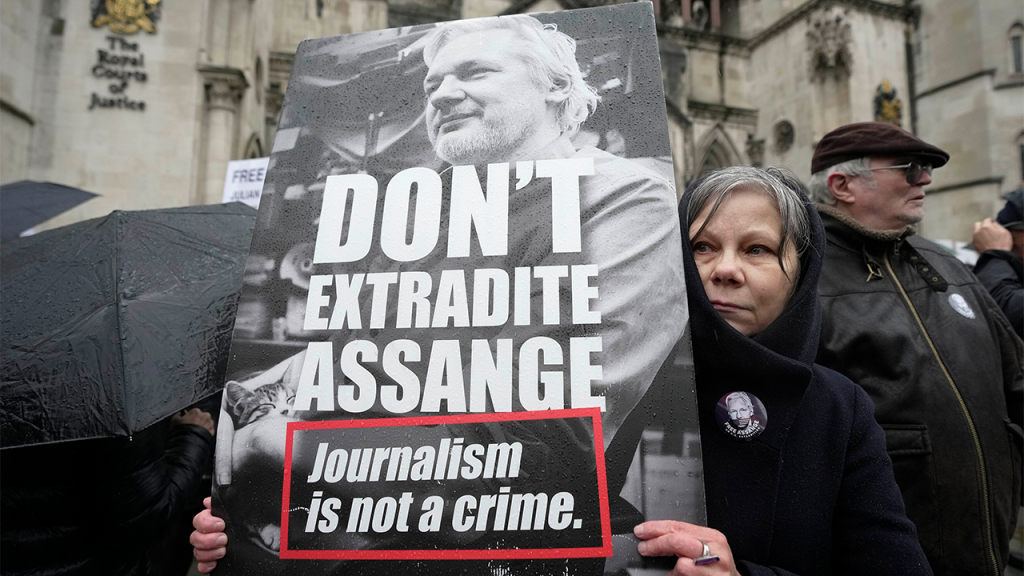The British High Court recently ruled that the U.S. cannot extradite Wikileaks founder Julian Assange on espionage charges unless assurances are given that he will not face the death penalty and will receive First Amendment protections. If these assurances are not provided, Assange will be granted leave to appeal without a further hearing. The ruling gives the U.S. three weeks to provide the necessary assurances to address these grounds. If the U.S. declines to give the assurances, Assange will have the right to appeal his extradition on these grounds. If assurances are given, there will be a hearing on May 20 to determine their sufficiency and give a final ruling on whether Assange can appeal.
Assange, a 52-year-old Australian national, has been held at London’s high-security Belmarsh Prison since he was removed from the Ecuadorian Embassy in April 2019 for breaching bail conditions. He had sought asylum at the embassy to avoid extradition to Sweden over rape allegations. The investigations into these allegations were eventually dropped. If extradited to the U.S., Assange is facing 17 counts under the Espionage Act for allegedly receiving, possessing, and communicating classified information, as well as one charge of conspiracy to commit computer intrusion. If convicted, he could face up to 175 years in a maximum security prison in the U.S.
Assange’s appeals were largely rejected by the British judges, who dismissed his claim of political prosecution. The judges mentioned that even though Assange acted out of political conviction, it does not mean that the extradition request is made based on his political views. The judges also dismissed concerns about a CIA plot to kidnap or kill Assange while he was at the Ecuadorian Embassy. Assange’s brother, Gabriel Shipton, expressed concerns about Assange’s deteriorating physical and mental health due to prolonged imprisonment. He called for a diplomatic solution to be reached swiftly and for Assange to be released and returned home to Australia.
The U.S. prosecution of Assange over WikiLeaks’ 2010 publication of classified cables has been criticized by press freedom groups as setting a dangerous precedent to criminalize journalism. No publisher had previously been charged under the Espionage Act until Assange. The Obama administration decided not to indict Assange in 2013 due to concerns about the implications for press freedom. However, the Trump administration later moved to indict Assange under the Espionage Act, which has been continued by the Biden administration. Assange’s wife, Stella Assange, has called her husband a political prisoner and demanded that the Biden administration drop the case against him. The case is seen as a determining factor for Assange’s life.
The ruling by the British High Court has raised concerns from U.N. Special Rapporteur on Torture Alice Edwards about Assange’s mental health and the potential for him to face a disproportionate sentence in the U.S. of up to 175 years, along with the likelihood of ongoing solitary confinement. The court did not fully address these concerns, according to Edwards. Many press freedom advocates and organizations have called for the Biden administration to drop the case against Assange, emphasizing the threat it poses to journalists and the news media. The case is seen as a significant test of press freedom and the U.S. government’s treatment of whistleblowers and journalists who expose wrongdoing. The final decision on Assange’s extradition to the U.S. remains pending, with possible further hearings and appeals in the future.


